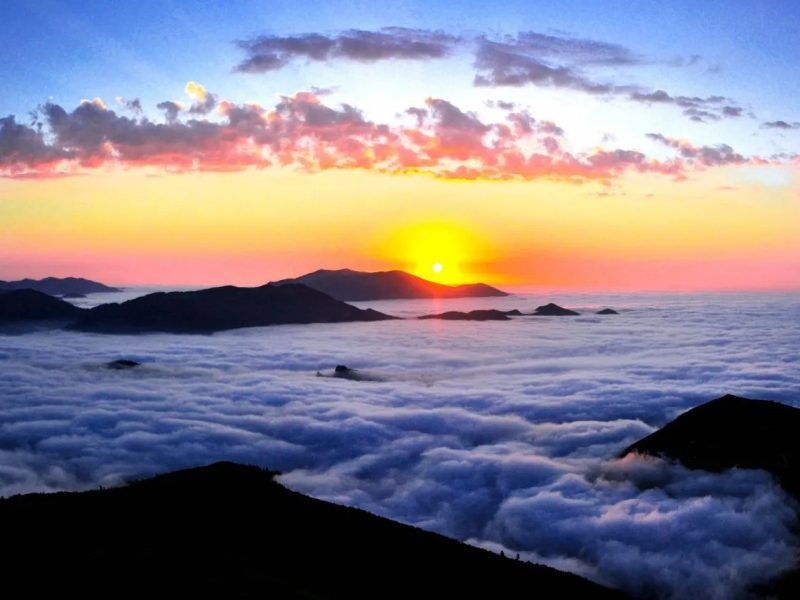While people across the country are turning to rain prayers in response to drought, in the highlands of Turkey’s Eastern Black Sea region, locals perform an old ritual called “Kuçkucura” to chase away fog and call for sunshine.
One of the still-practiced traditions of the Eastern Black Sea is the fog-dispelling prayer; Kuçkucura. In his 1945 book Collections from the Dialects of Our Northeastern Provinces, Prof. Dr. Ahmet Caferoğlu documents a sunshine prayer from Trabzon’s Yomra and Şalpazarı districts, as well as from Rize. Today, this tradition is still being kept alive in the high altitudes of Çaykara district in Trabzon.
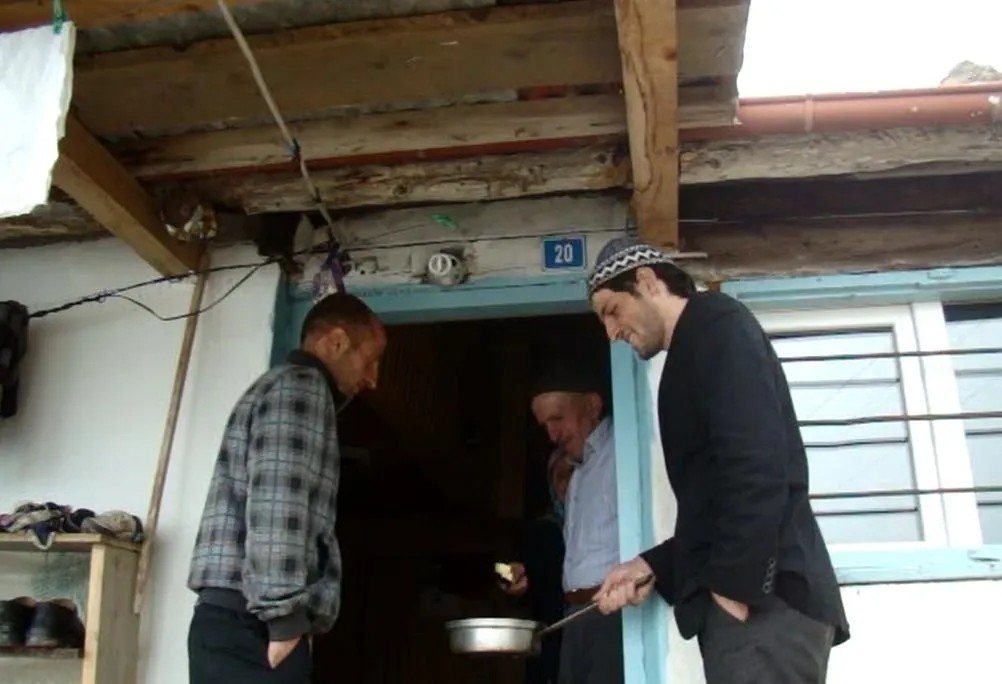
Suha Arın’s 1986 documentary “When the Mists Are Driven Away”, the first installment of “Old Houses, Old Masters”, begins with the “fog-chasing” ritual, a very old tradition unique to the Eastern Black Sea region that is now on the verge of being forgotten.
“Kuçkucura” in Trabzon, “Babra Bubrik” and “Heyva Heyva” in Rize
According to this tradition, which is still practiced today, children go door-to-door in the highlands reciting rhymes, collecting ingredients for a local dish called kuymak in an effort to drive away the persistent fog. Household members give them butter, corn flour, and cheese as offerings for the ritual. Once the kuymak is cooked, it is used to symbolically chase the fog and invite the sun. In Trabzon, the ceremony is called “Kuçkucura”, while in Rize, it goes by “Babra Bubrik” or “Heyva Heyva.”
Here is a traditional chant recited during the ritual in Trabzon:
Kuçkucura, what do you want?
I want oil, I want honey,
I ask for sun from God.If you give, we’ll go,
If you don’t, we’ll move on,
A thousand blessings to those who give,
May a dead rat the size of my head fall into the pot of those who don’t.
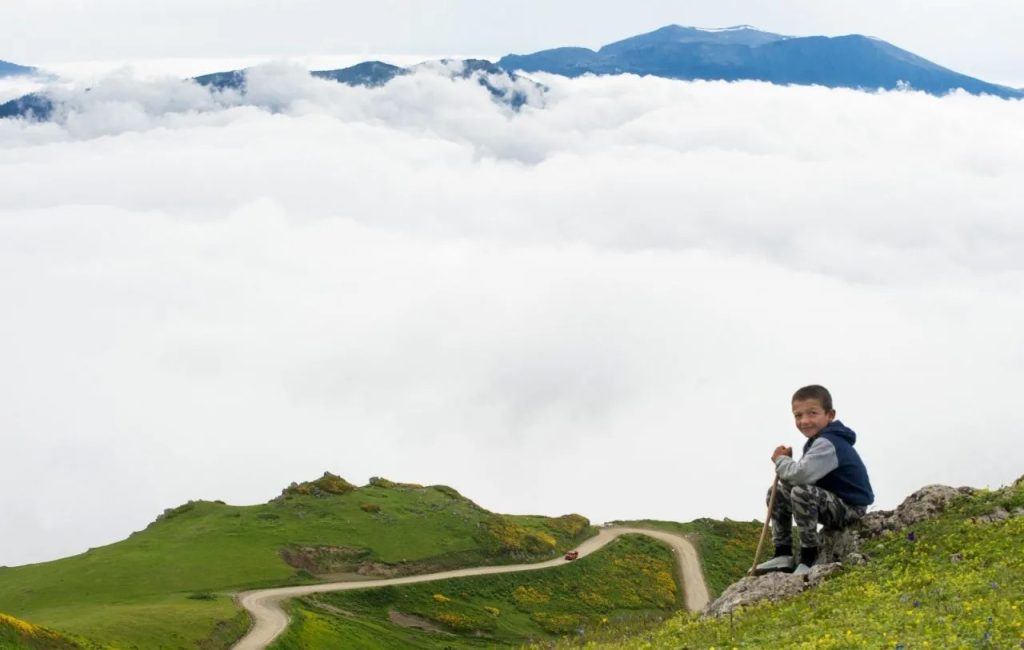
The Absence of Sunlight
In Aplareyas Plateau of Uzuntarla Neighborhood in Çaykara district, the centuries-old tradition of praying for sun and dispelling fog is still alive. Due to thick fog and drizzle, locals couldn’t cut and dry hay to feed their livestock for winter, so they gathered to pray for sunshine. At 2,000 meters altitude, villagers prayed for sun to shine, fog to clear, and rain to stay away.
Young shepherds in the area organized the ritual. Every household contributed butter. The most skilled woman in the village prepared kuymak over a fire lit in the center of the highland. While some of the melted butter was flung into the sky, the rest was poured into the fire as part of the prayer.
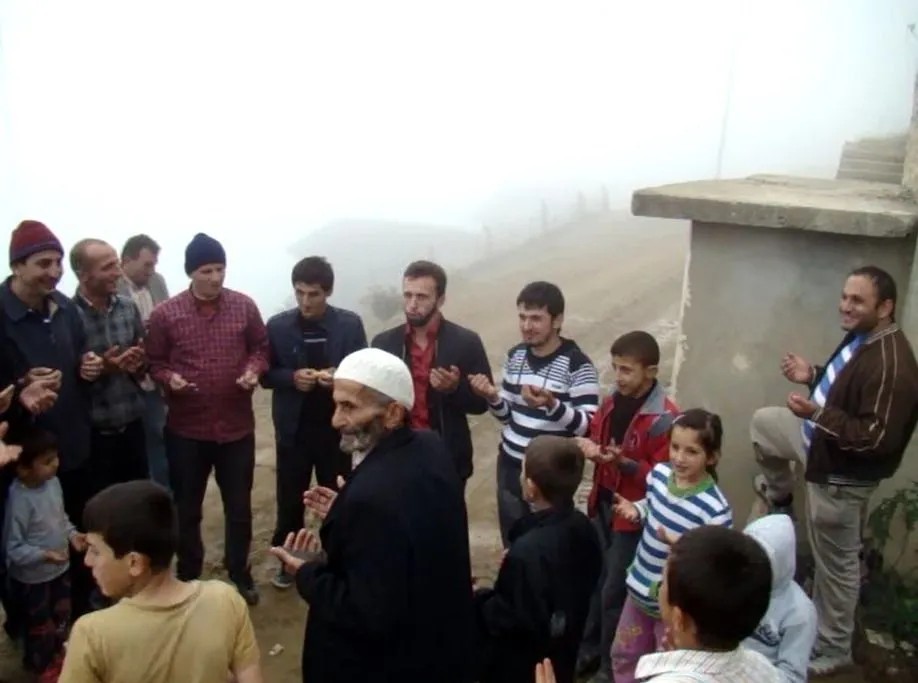
A Belief Passed Down Through Generations: Kuçkucura
Enver Narcı, one of the locals, stated that the region goes days or even weeks without sunlight, with constant fog and rain. “We pray for the fog to lift so we can cut and dry our grass and allow our crops to see sunlight,” he explained, referring to the long-standing belief in sun prayers passed down through generations.
Organized by Shepherds
Narcı described how young shepherds organize the event:
Children make a puppet out of a broom used to sweep stables, and two kids animate its arms. They go door to door collecting butter, flour, cream, and sugar, reciting the rhyme:
Guza guza Gusguruza,
We ask God for sunshine,
We ask women for cream,
Blessings to those who give,
Let a dead rat fall into the pot of those who don’t.
The collected ingredients are then used by the most skilled cook to make kuymak, which is rich in butter. Some of the butter is thrown into the sky, and some onto the fire to intensify the flames. During this, the local imam prays for the sun, and the gathered crowd responds with “Amen.”
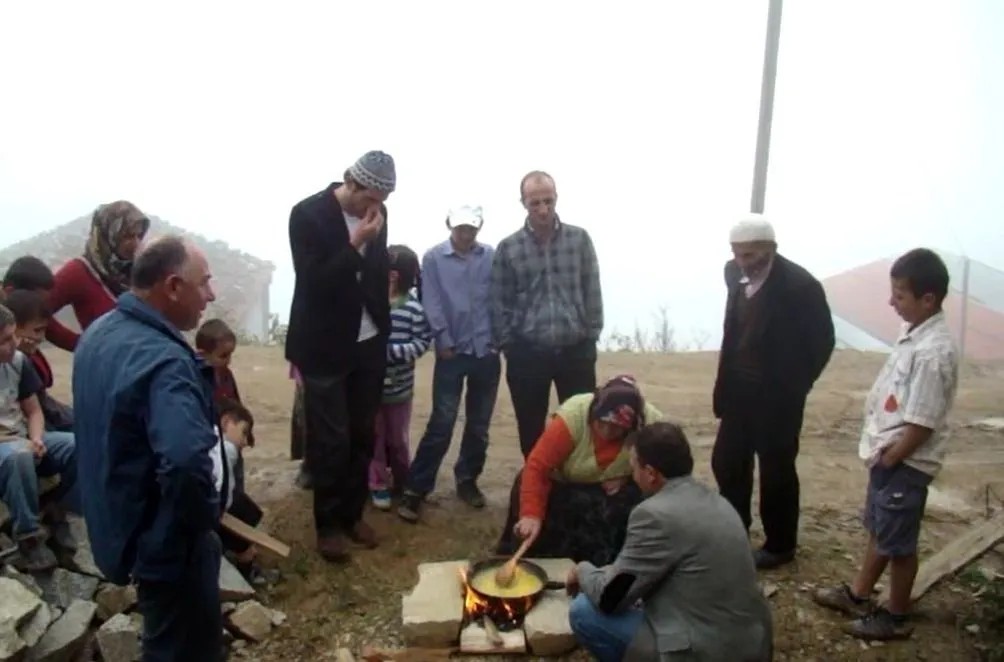
“Without Sun, the Grass Rots”
Local İsmail Özsoy explained that hay-cutting season in the highlands is only about a month and a half long, and clear weather is crucial. If the grass is not dried in time, it rots. According to the traditional Rumî (old Ottoman) calendar, the cutting starts in early August and ends mid-August. Özsoy said:
“In our highland, we don’t pray for rain like elsewhere; we pray for sun. When rain falls during this critical period, we’re in trouble. We’re desperately waiting for sunny days.”
“We Haven’t Seen the Sun in Over a Month”
Zihni Turgut, another resident, said the weather has been cloudy and rainy for over a month, making it difficult to prepare winter hay for their animals.
“While the rest of the country is suffering under scorching heat, we are longing for the sun,” he said. “It’s hay-cutting season, but we can’t work because of the fog and rain. So we prayed for the fog to lift and for the sun to come out. While flinging the melted butter into the air, we say:
‘O Lord, it’s You who will clear the sky, it’s You who will stop this rain.’

